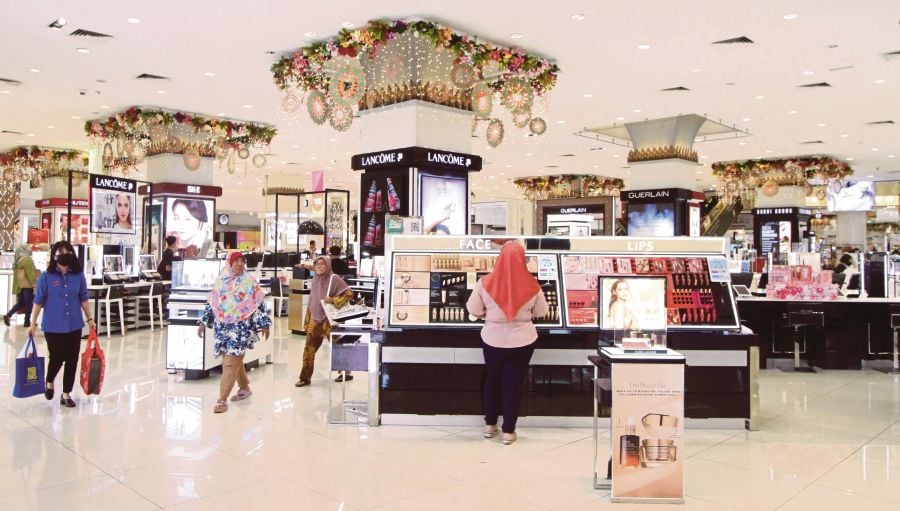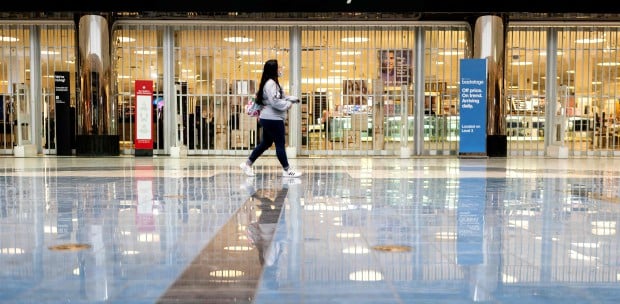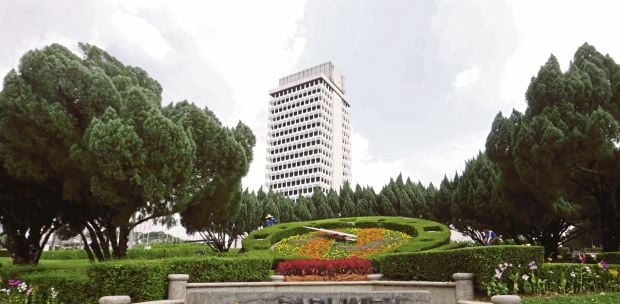KUALA LUMPUR: Amid the ever-growing popularity of online shopping and continuous evolution of e-commerce, industry players and experts are debunking the hype surrounding the supposed demise of brick-and-mortar retail, particularly department stores.
Contrary to popular belief, Retail Group Malaysia managing director Tan Hai Hsin said these retail establishments are not only surviving but also thriving by reimagining the shopping experience for the modern consumer.
Tan said since the beginning of 2022, Malaysian consumers have been back to shopping centres, thus there is no such thing as the end of brick-and-mortar retail.
"While the landscape of retail continues to evolve, the demise of department stores appears to be far from imminent," he told the New Straits Times.
Tan points to several key factors that have enabled department stores to withstand the digital onslaught.
He said one crucial aspect is that department stores have a wide variety of brands under one roof.
"Department stores sell all kinds of things under one roof. Shoppers can browse many brands under one roof. "Shoppers can compare prices of different brands and models. Shoppers can try different brands and models. All these cannot be achieved in specialty stores," he said.
Moreover, Tan said many department stores have recognised the importance of curating unique in-store experiences that cannot be replicated online.
He also said department stores are still relevant in towns with relatively small populations.
Many fashion specialty stores do not set up specialty stores in small towns due to limited demand.
"Live demonstrations, personalised styling sessions and exclusive in-store events have all contributed to drawing customers back to physical stores."
Many retail brands do not have sufficient merchandise to set up physical stores. They are best operated as concessionaires inside department stores or multi-brand specialty stores," he said.
Parkson Holdings Bhd, an early participant in the Malaysian retail business, has seen evolving consumer behaviours and economic constraints prompt a reevaluation of its business strategies.
Parkson has reduced its shop count from 102 to around 80 since 2020.
For the past five years, the company has been in debt.
Parkson lost RM129 million in the fiscal year ended June 30, 2019. It had a net loss of RM119 million in fiscal year 2022.
The financial year's end was revised in 2021 to December 31.
Parkson's Vietnam division filed for bankruptcy in April 2023, after closing its last store there.
Parkson Retail Asia Ltd chief executive officer for Malaysia operation Law Boon Eng said Parkson Malaysia has noted significant changes in consumer purchasing patterns, influenced by economic uncertainties, increased living costs and the depreciation of the ringgit against the US dollar.
Comparing the current economic landscape to the situation in 2019, Law said the company has identified some similarities in consumer trends.
"However, stark differences emerge when contrasting the present scenario with that of the previous year.
"During the Hari Raya festival last year, discussions surrounding the withdrawal of funds from the Employees Provident Fund were prominent, signifying a push for investment.
"In contrast, this year has seen a notable decline in purchasing power among consumers, primarily driven by a combination of reduced disposable income, escalating costs of goods, and the overall cost of living," he said.
Amid this landscape, Law said Parkson Malaysia finds itself navigating through a dynamic marketplace.
"Minimum wage laws and manpower shortages further compound the challenges faced by retailers, including us.
"What I can say is, the central question for these businesses shifts from how to maximise operational efficiency to how to control our costs and maintain the viability of Parkson Malaysia as a prominent name in the retail industry," he added.






